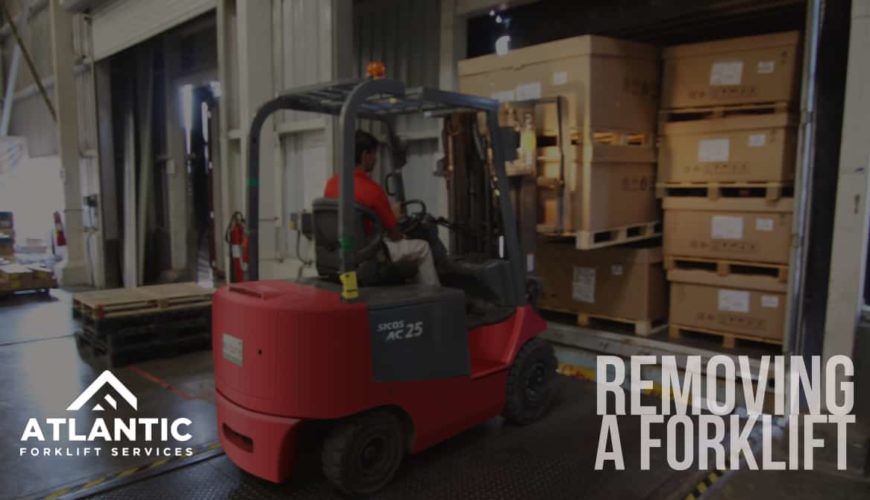
Removing a Forklift from Service
Productivity and safety don’t have to be adversaries, though it sometimes takes some effort to make them work together.
You may be tempted to allow a damaged or compromised forklift to remain on the floor, but the fact of the matter is, there are instances where even a slightly damaged must be taken out of service. OSHA makes sure of that...
Read More
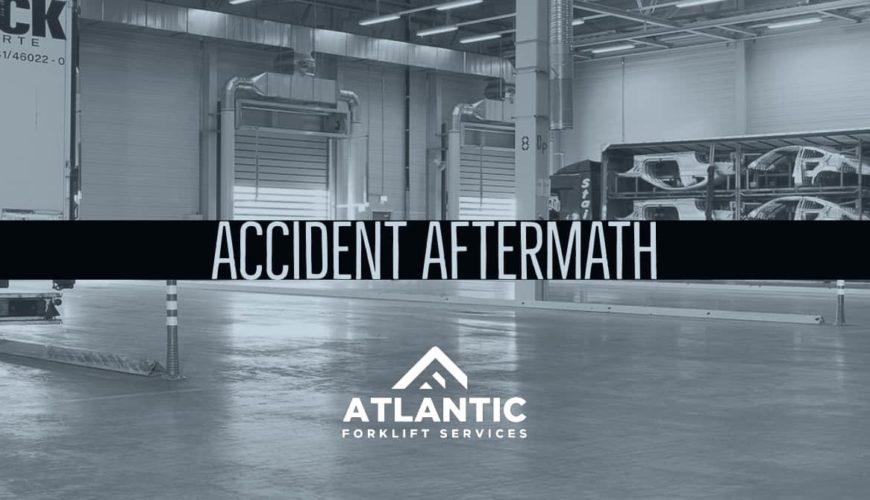
AFTER the Forklift Accident
Accidents happen. We spend a lot of time in this blog discussing the finer points of forklift operation and safety, and you hopefully offer training and education to keep your people safe, and even still – accidents happen.
So we’ve covered what to do before an accident – but what can you expect after an accident happens in your...
Read More
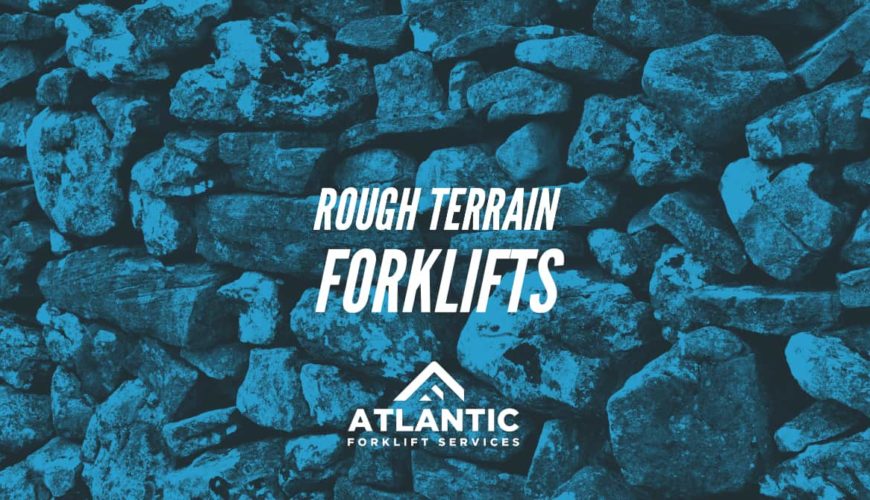
Rough Terrain Forklifts
The forklifts in most warehouses and manufacturing facilities are perfectly sized to accomplish the tasks at hand – but some jobs require a little more muscle. For those bigger tasks, we give you the rough terrain forklift.
Class 7 forklifts are specifically made for rough terrain and are mostly used outdoors at construction sites and...
Read More
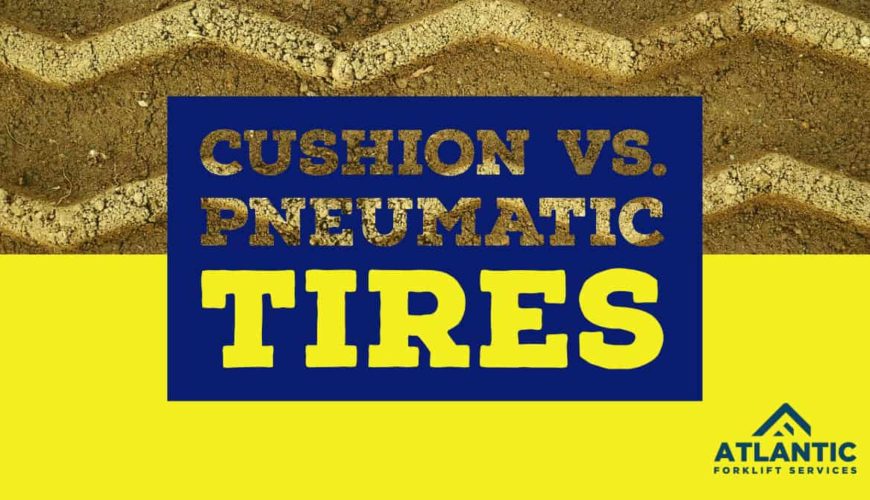
Pneumatic vs Cushion Tires
The type of tire you’re going to want to choose for your forklift fleet depends very much on the type of terrain where your trucks will be operating.
The fact is most environments require specific tires, and some due diligence may be required before you make a purchase. The safety and performance of your fleet depends on this decision, so do...
Read More

5 Tips to Improve Forklift Performance
Atlantic Forklift Services’ technicians are among the best in the business. We asked them for a list of five things you can do right now to improve your fleet’s performance.
Tires
Check them. You’d be surprised, our experts say, to learn how many forklift fleets are operating on worn tires. Just something as simple as checking...
Read More

Awareness in the Warehouse
It’s a difficult question to ask a forklift operator after an accident. Was the incident a result of the driver not knowing the proper procedure or being willfully ignorant of the safety regulations? It is, however, an important distinction.
Making sure your operators, and anyone who works around a forklift, is aware of the correct safety...
Read More
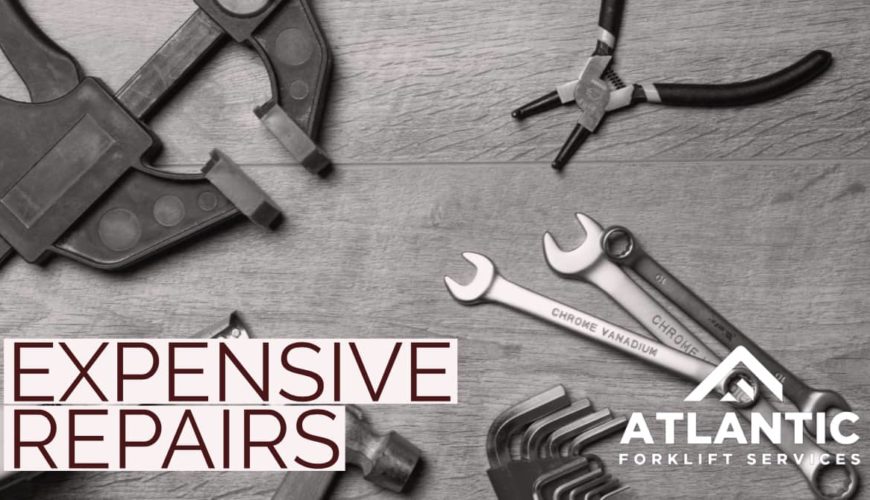
Expensive Forklift Repairs
Anyone who has ever owned a car knows that now two repairs are alike. Some are simple, other more complicated and it may be the easiest fixes that end up causing the most trouble.
Of course, following recommended routine maintenance procedures can great alleviate both problems and costs.
The same is true with forklifts.
Repairs to lifts...
Read More
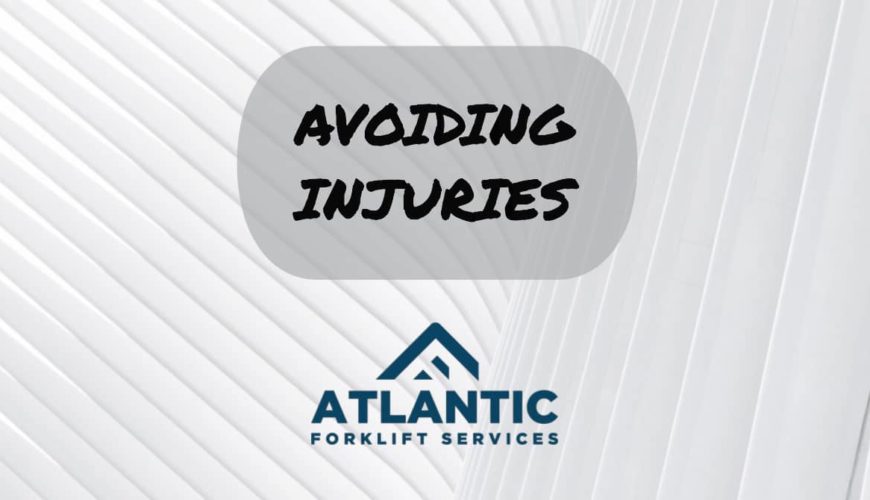
Avoiding Material Handling Injuries
Here’s the thing about common injuries. Most are preventable. A little common sense goes a long way, and forklift operators can do a lot of things to prevent many of the injuries commonly associated with forklifts and the environments in which they operate.
Of course, accidents do happen, but continuous training and safety awareness are...
Read More
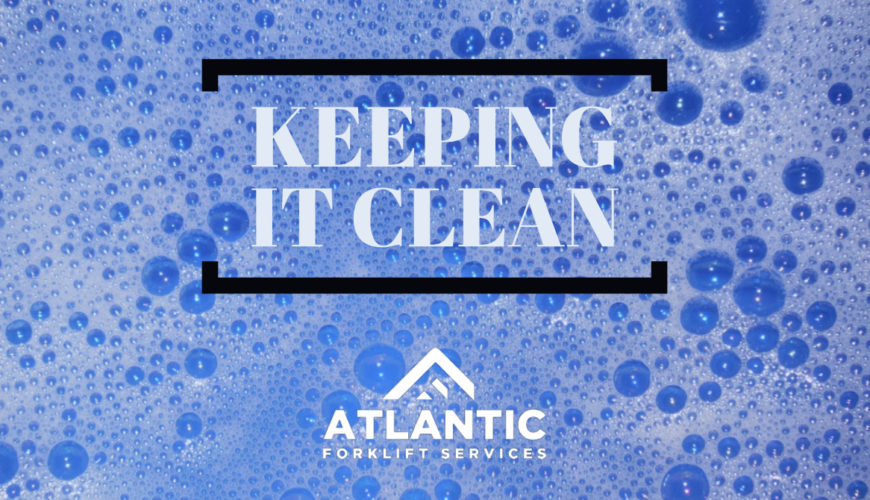
Cleaning Your Forklift
We have covered the preventative maintenance topic quite a bit in this blog. Not only can preventative maintenance keep your forklifts in tip-top shape and running smoothly, it can keep the people on and around the truck safe and working efficiently as well.
But there is something you might not have considered as a safety...
Read More
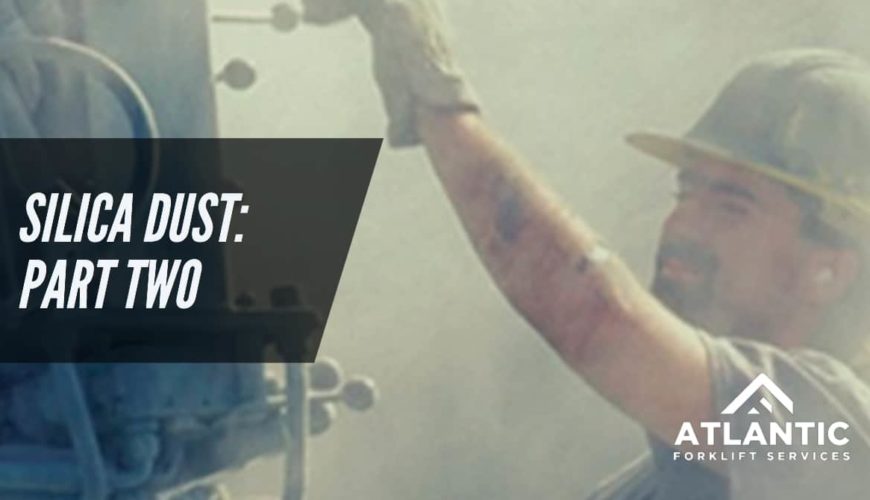
Part Two: Handling Silica Dust
In part one of this two-part series, we ran through the occupations and facilities that are most likely to involve exposure to silica dust- the potentially dangerous by-product of crushing, drilling or cutting concrete and other materials. Long-term exposure to silica dust can cause serious and sometimes fatal lung conditions and you should read...
Read More
